Breast cancer ranks as the second most prevalent cancer worldwide, following lung cancer. Detecting a tumour early significantly increases the chances of survival, making early screening essential. An initiative called Discovering Hands is training visually impaired women to conduct breast examinations with their heightened sense of touch. By identifying even, the smallest abnormalities, these examiners contribute to the early detection of breast cancer, which can be lifesaving.
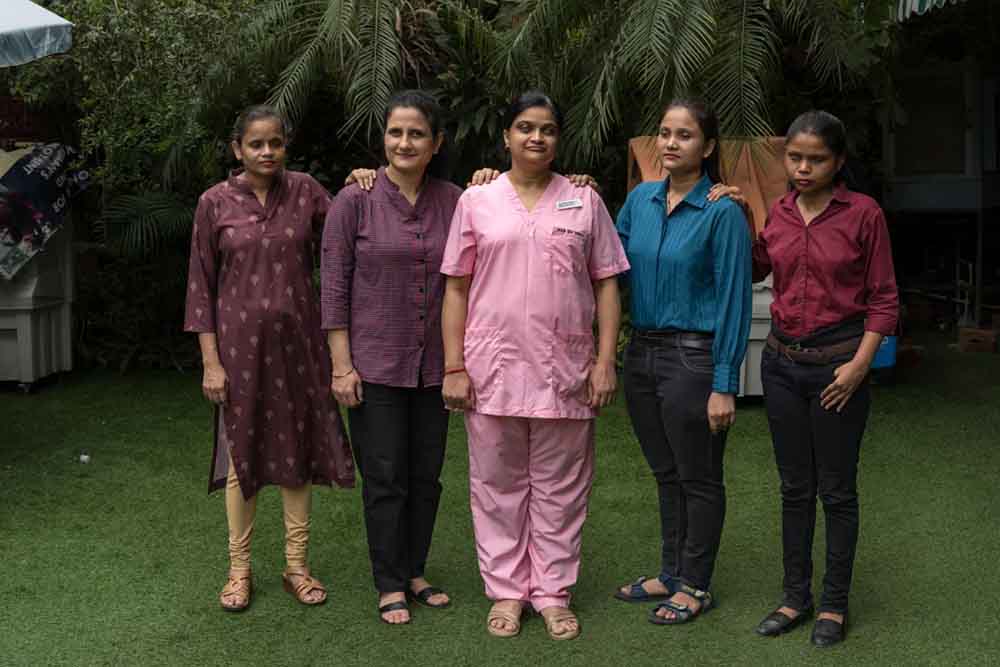
Image source: National Public Radio (NPR)
According to India’s Ministry of Health and Family Welfare, nearly 75,000 women in the country succumb to breast cancer each year, with only half of diagnosed individuals surviving. Late detection is a major factor contributing to these statistics. In response to this, the Discovering Hands program has been implemented in India, training blind women to conduct Tactile Breast Examinations (TBE) as an effective early detection method.
The Role of Tactile Breast Examination (TBE)
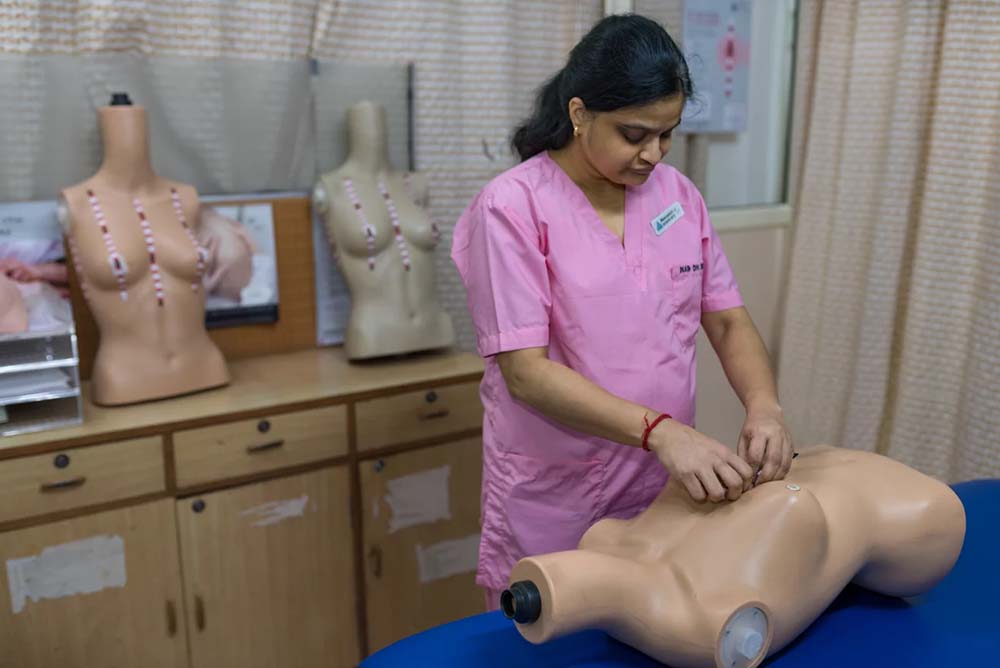
Image source: National Public Radio (NPR)
Research suggests that blind individuals develop an enhanced sense of touch, allowing them to detect minuscule lumps as small as 0.5 cm. TBE leverages this ability by providing structured training that helps blind women recognize abnormalities that might go unnoticed in routine self-checks or traditional examinations.
Unlike mammograms, which require costly imaging equipment and specialised radiologists, TBE presents a cost-effective alternative, particularly in areas with limited medical infrastructure. Medical Tactile Examiners (MTEs) collaborate with doctors, supplementing routine screenings with their refined tactile skills.
The Evolution of the Discovering Hands Program
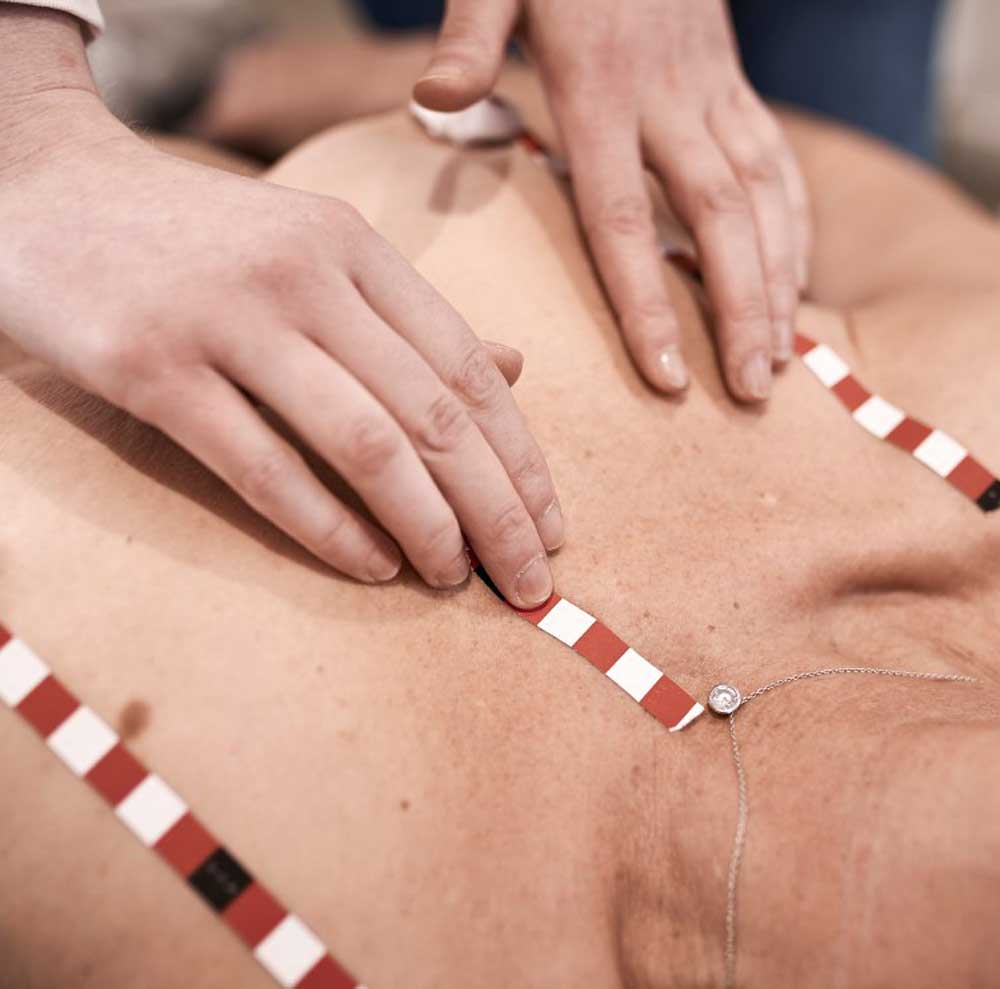
Image source: Discovering Hands
Dr. Frank Hoffmann, a German gynaecologist, pioneered the Discovering Hands initiative after realising that many early-stage breast cancer cases were being overlooked globally. He envisioned a method to enhance breast examinations by incorporating specially trained professionals as medical support staff. Recognising studies that indicate blind individuals often develop a superior sense of touch, he chose to train visually impaired women as MTEs. “Three minutes is all the time I have to do clinical breast examinations in my practice,” said Duisburg-based gynaecologist, Dr. Frank Hoffmann. “That's not enough time to find small lumps in the breast tissue, which is crucial to catching breast cancer early.”
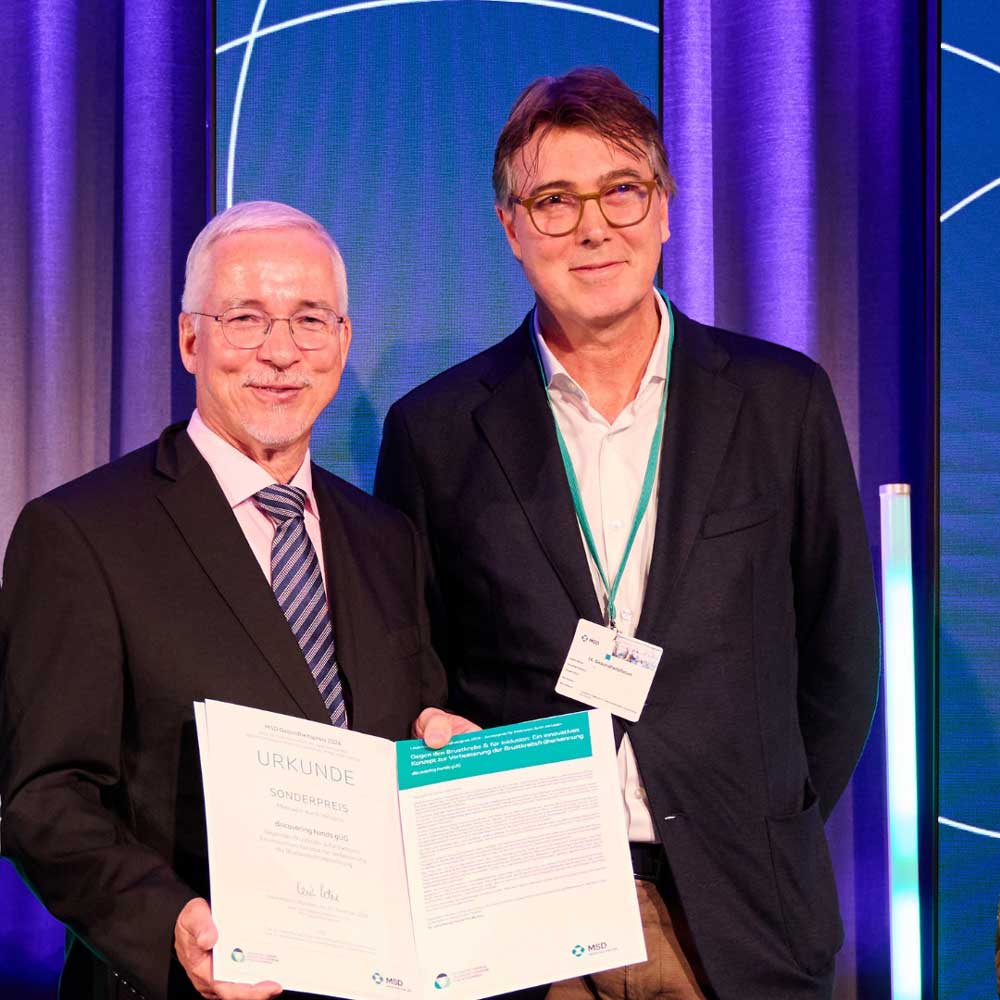
Dr. Frank Hoffmann (Left), a German gynaecologist, pioneered the Discovering Hands initiative
People trained to read Braille have a highly developed sense of touch, so Hoffmann theorised that blind and visually impaired women would be better suited than anyone else to carry out breast examinations. “The evidence is now unequivocal,” he said in an interview with BBC.
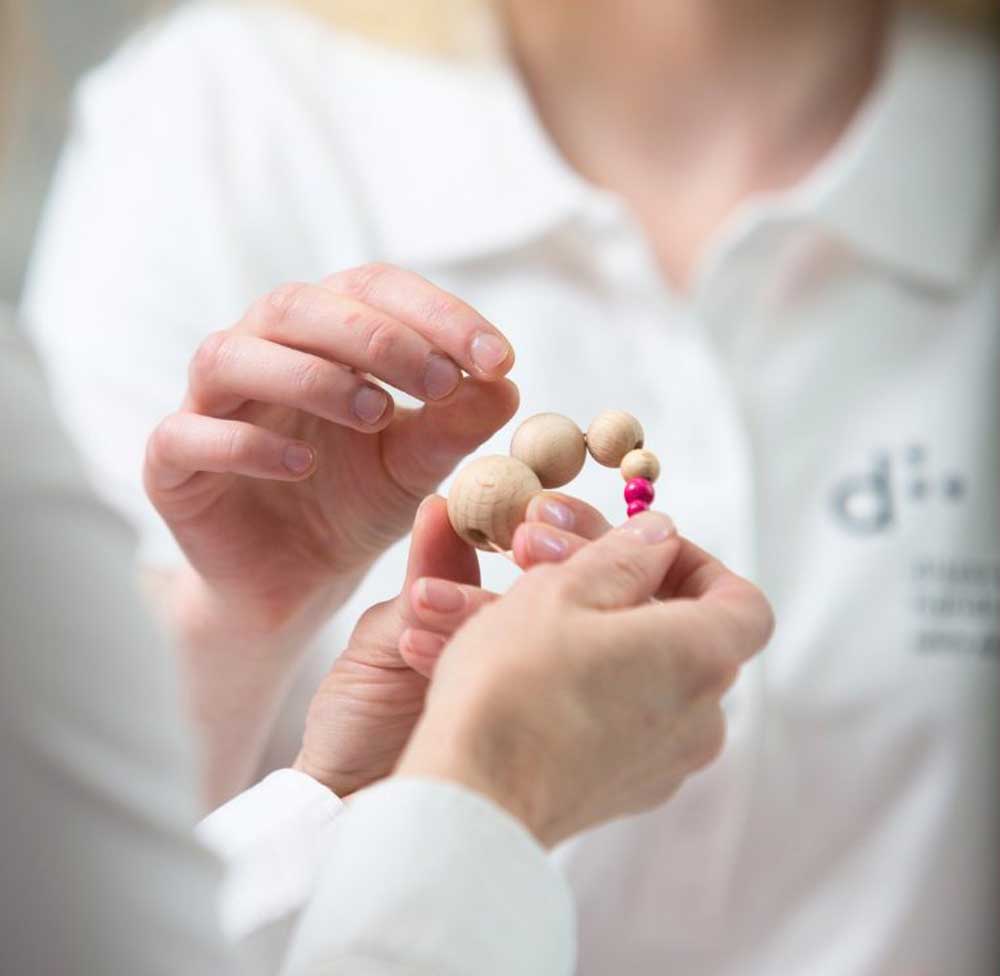
Image source: Discovering Hands
In an study conducted with Essen University, blind women reportedly detected nearly a third more lumps than regular gynaecologists. “Women doing self-examinations can feel tumours which are 2 cm and larger,” Hoffmann explained. “Doctors usually find tumours between 1 cm and 2 cm, whereas blind examiners detect lumps between 6 mm and 8 mm. That makes a real difference, that's the time it takes a tumour to spread its cells into the body.”
A 2023 pilot study at Erlangen University Hospital in Germany found that visually impaired MTEs demonstrated accuracy in detecting potentially cancerous tumours on par with doctors trained in the procedure.
Pioneers of the Discovering Hands Program in India
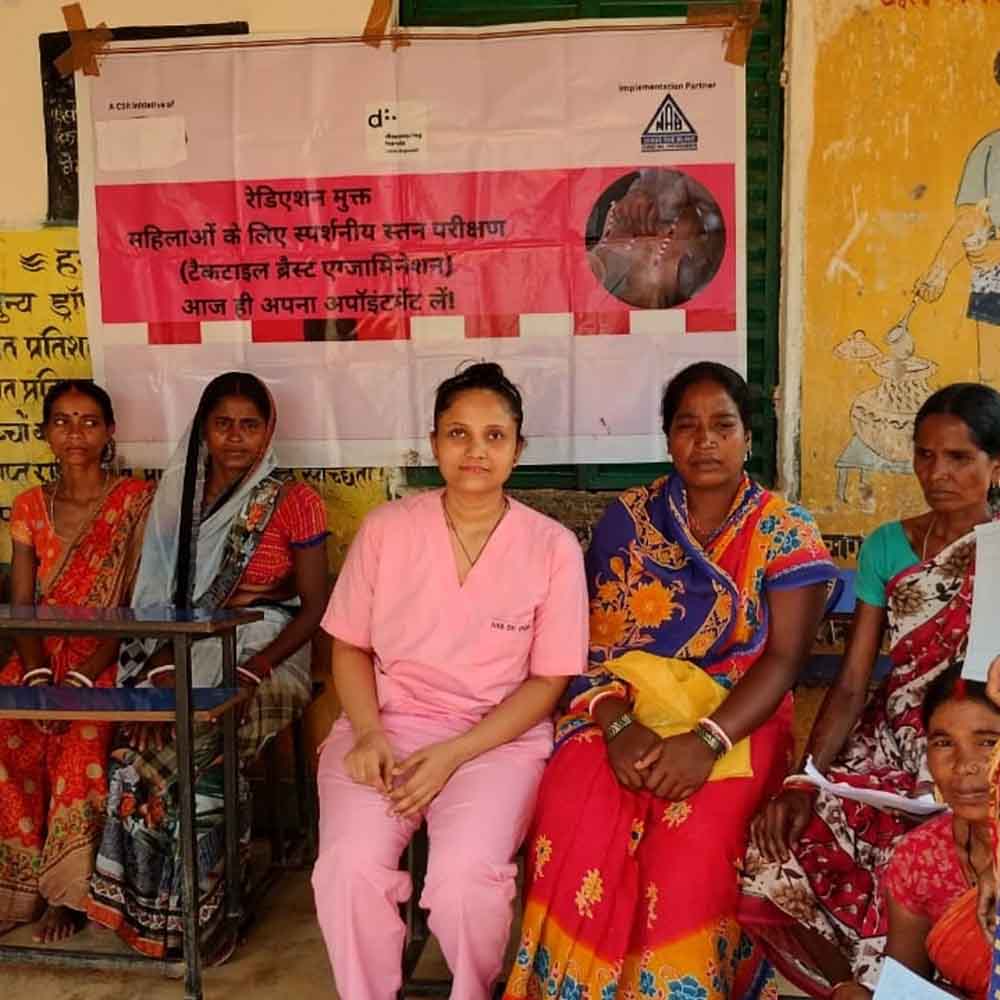
Image source: Discovering Hands India
Introduced in India in 2017, the program is now operational in major hospitals across major cities and has impacted 5000+ women across 8 locations in 6 states of India. Given the shortage of mammography equipment in the country, these examiners provide an invaluable service in breast cancer detection. Two women played a crucial role in establishing Discovering Hands in India and training MTEs. Shalini Khanna Sodhi, the Founding Director and Secretary of the National Association for the Blind, India’s Centre for Blind Women and Disability Studies, emphasised that blind women have historically faced severe employment challenges. She highlights that, beyond aiding early detection, this initiative provides visually impaired women with career opportunities and a renewed sense of purpose. Dr. Kanchan Kaur, a breast reconstructive surgeon, also played an instrumental role. She, along with Sodhi, travelled to Germany to study the technique before implementing it in India. According to Kaur, a major challenge is the lack of ‘breast awareness’ among Indian women. Unlike in many Western countries where mammograms are a routine screening tool, access to such imaging remains scarce in India.
Why Early Detection Matters
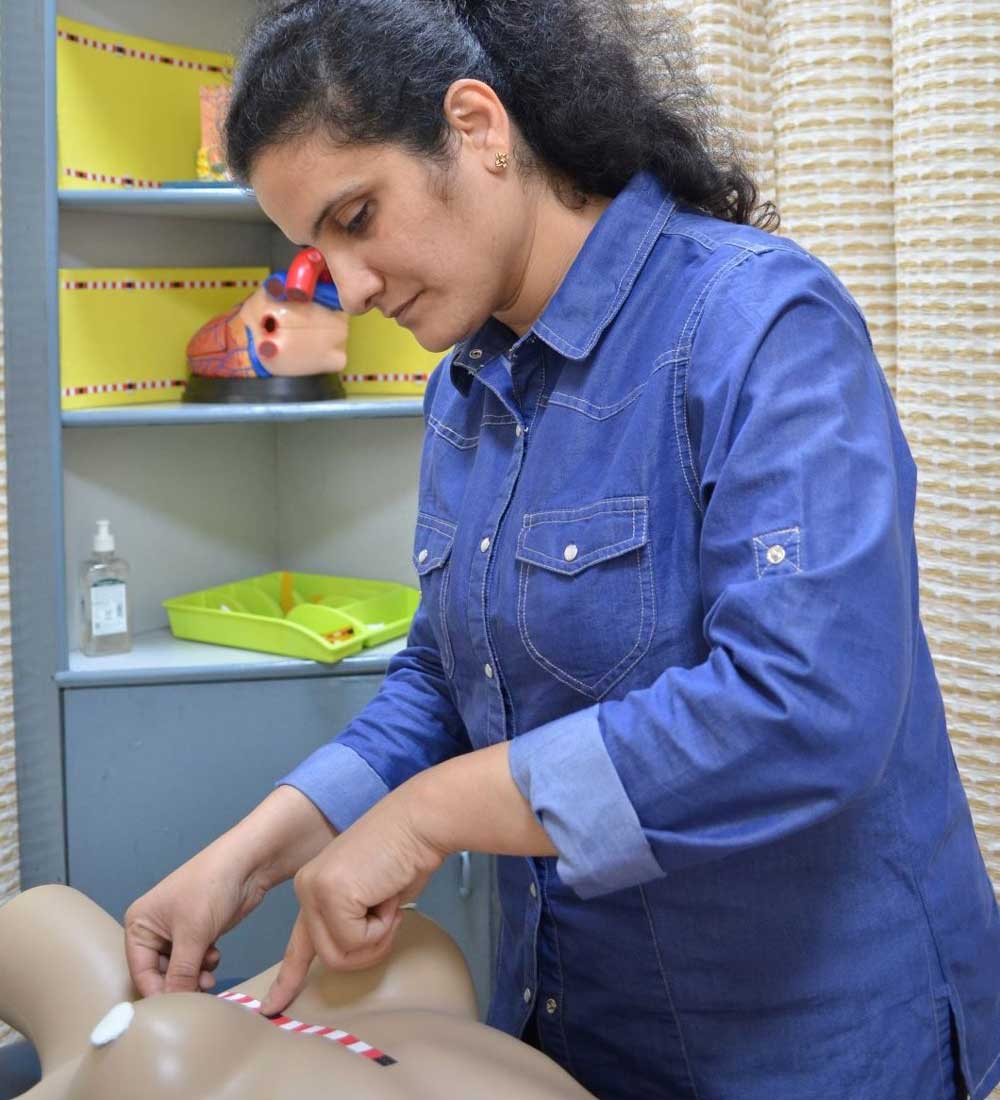
Image source: Discovering Hands India
An article published by National Public Radio (NPR) highlights that in India, breast cancer often affects younger women, typically between ages 45-49, leading to lower survival rates compared to the West. With limited access to mammography, especially in rural regions, many cases go undiagnosed until later stages. Studies by the Indian Council of Medical Research (ICMR) indicate that only one in two women diagnosed with breast cancer in India survive.
Given these realities, early detection is critical. Since not all breast lumps are cancerous, timely evaluation can rule out malignancies and provide prompt treatment if necessary. The Discovering Hands initiative aims to bridge the gap in access to early detection by providing an alternative screening method that is both effective and affordable.
A Step Toward a Healthier Future
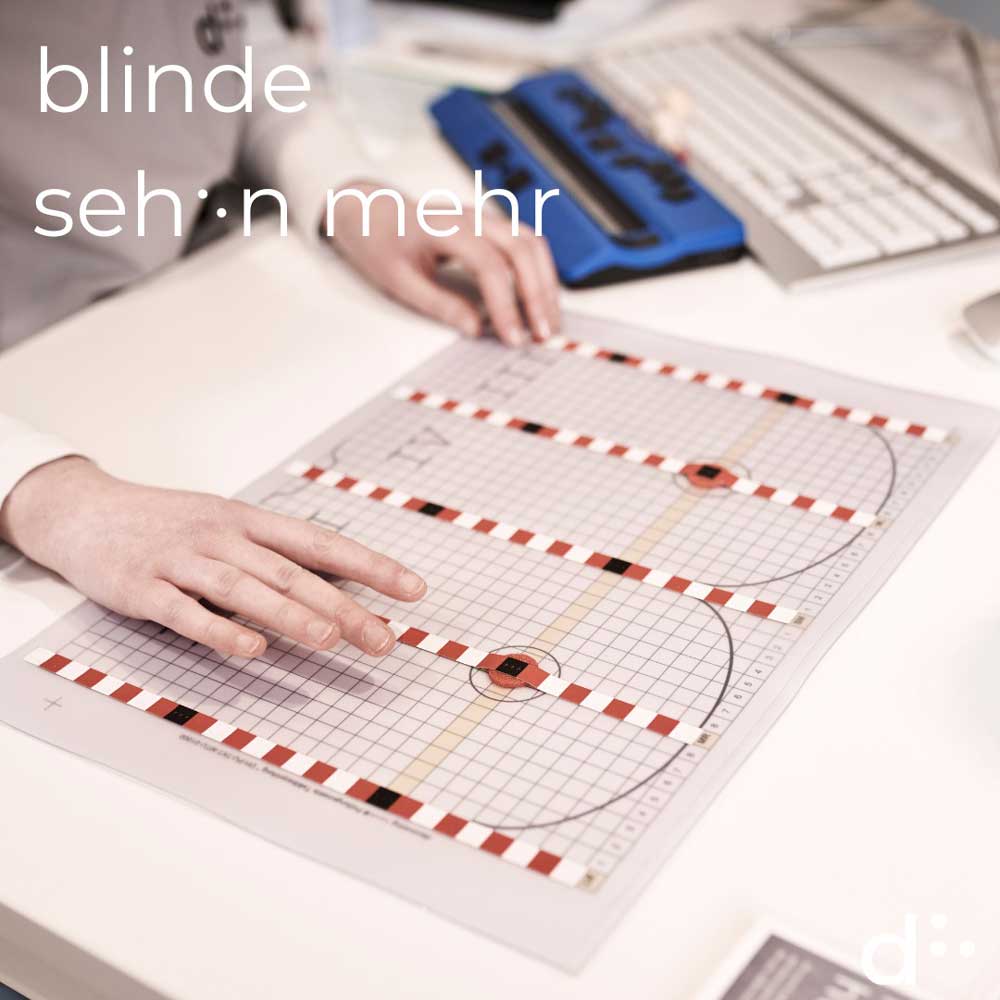
Image source: Discovering Hands
The Discovering Hands program exemplifies how innovation can address pressing healthcare challenges while empowering marginalised communities. By integrating MTEs into mainstream healthcare, India has the opportunity to significantly improve breast cancer survival rates.
Encouraging widespread breast screenings, expanding TBE training programs, and supporting MTEs in medical settings could dramatically alter the landscape of breast cancer diagnosis in the country.